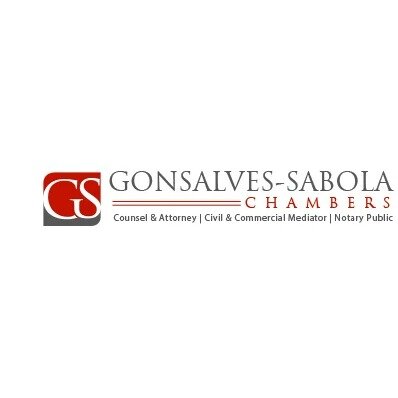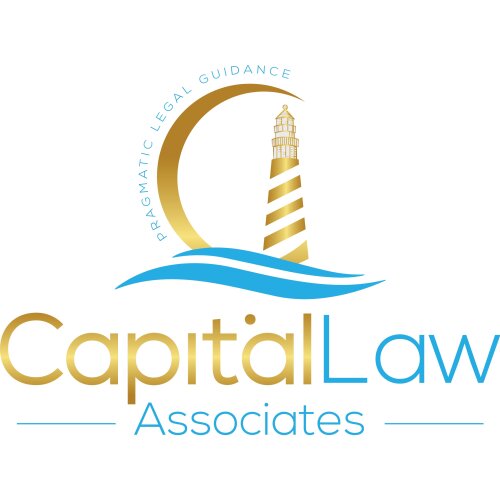Best New Business Formation Lawyers in Nassau
Share your needs with us, get contacted by law firms.
Free. Takes 2 min.
List of the best lawyers in Nassau, Bahamas
About New Business Formation Law in Nassau, Bahamas
New Business Formation in Nassau, Bahamas, presents an exciting opportunity for entrepreneurs looking to leverage the location's vibrant economy and favorable business environment. The Bahamas offers a strategic location for international trade and commerce, facilitated by a robust legal framework that supports business activities. Business formation involves several legal processes, including choosing the appropriate business structure, registering the business, and complying with local tax regulations. Understanding the nuances of this process is critical to ensure seamless operations and compliance with Bahamian laws.
Why You May Need a Lawyer
Entrepreneurs may require legal assistance when forming a new business in the Bahamas for several reasons. A lawyer can help identify the best business structure-such as a sole proprietorship, partnership, or corporation-based on legal and tax implications. Legal advice is also crucial in drafting foundational documents like the Articles of Association or Memorandum of Understanding. Additionally, navigating the regulatory requirements, including obtaining the necessary permits and licenses, can be complex. Lawyers also play a crucial role in ensuring compliance with ongoing legal obligations and protecting intellectual property rights.
Local Laws Overview
The legal landscape for New Business Formation in Nassau is governed by several key pieces of legislation. The Companies Act is central to the incorporation and regulation of companies in the Bahamas. The Business License Act outlines the necessity for obtaining a business license to legally operate. Additionally, the Investment Funds Act and Banks and Trust Companies Regulation Act are vital for businesses dealing in financial services. It's important to note the Bahamas is known for having no income, capital gains, or inheritance taxes, highlighting the necessity for understanding relevant tax laws and obligations.
Frequently Asked Questions
What are the main types of business structures available in Nassau?
The primary business structures include sole proprietorship, partnership, company (limited by shares, guarantee, or unlimited), and offshore companies. Each has different legal implications and benefits.
How do I register a business in Nassau?
Business registration involves several steps, including selecting a business name, preparing and submitting the necessary documents to the Registrar General's Department, and obtaining a business license from the Business License Authority.
What is the role of the Registrar General's Department?
The Registrar General's Department is responsible for overseeing business incorporations, recording company details, and ensuring compliance with the Companies Act.
Do I need a local partner to start a business in Nassau?
While not always required, having a local partner can be beneficial for navigating the regulatory environment and establishing local business networks.
Are there any incentives for foreign investors?
Yes, the Bahamas offers several incentives for foreign investors, particularly in the tourism, manufacturing, and financial services sectors, including exemptions from certain taxes and duties.
What are the requirements for obtaining a business license?
Requirements typically include submitting a completed application form, business plan, financial projections, and background information about the owners. These documents are reviewed by the Business License Authority.
Is there a need for ongoing compliance after establishment?
Yes, businesses must adhere to ongoing compliance requirements, such as filing annual returns, maintaining accurate financial records, and renewing licenses annually.
How can I protect my business's intellectual property in the Bahamas?
Bahamian law provides for the protection of intellectual property through patents, trademarks, and copyrights, which should be registered with the relevant authorities.
What taxes apply to businesses in Nassau?
The Bahamas does not impose income, capital gains, or inheritance taxes. However, Value Added Tax (VAT) and certain duties may apply depending on the business type and services provided.
Can I conduct online business transactions from Nassau?
Yes, online transactions are permissible. However, businesses must comply with both local e-commerce regulations and international standards for data protection.
Additional Resources
For further information and assistance, consider the following resources:
- The Registrar General's Department: Key for business registration and compliance
- The Department of Inland Revenue: Guidance on business licenses and taxes
- The Bahamas Investment Authority: Information on investment incentives and policies
- Bahamian Bar Association: For legal professionals specializing in business law
Next Steps
If you require legal assistance in business formation, consider reaching out to a local law firm specializing in business law to discuss your needs. Carry out a consultation to gain a clear understanding of their services, fee structures, and experience with similar operations. Armed with the right legal advice and resources, you can start your business on a strong legal footing in Nassau, Bahamas.
Lawzana helps you find the best lawyers and law firms in Nassau through a curated and pre-screened list of qualified legal professionals. Our platform offers rankings and detailed profiles of attorneys and law firms, allowing you to compare based on practice areas, including New Business Formation, experience, and client feedback.
Each profile includes a description of the firm's areas of practice, client reviews, team members and partners, year of establishment, spoken languages, office locations, contact information, social media presence, and any published articles or resources. Most firms on our platform speak English and are experienced in both local and international legal matters.
Get a quote from top-rated law firms in Nassau, Bahamas — quickly, securely, and without unnecessary hassle.
Disclaimer:
The information provided on this page is for general informational purposes only and does not constitute legal advice. While we strive to ensure the accuracy and relevance of the content, legal information may change over time, and interpretations of the law can vary. You should always consult with a qualified legal professional for advice specific to your situation.
We disclaim all liability for actions taken or not taken based on the content of this page. If you believe any information is incorrect or outdated, please contact us, and we will review and update it where appropriate.

















